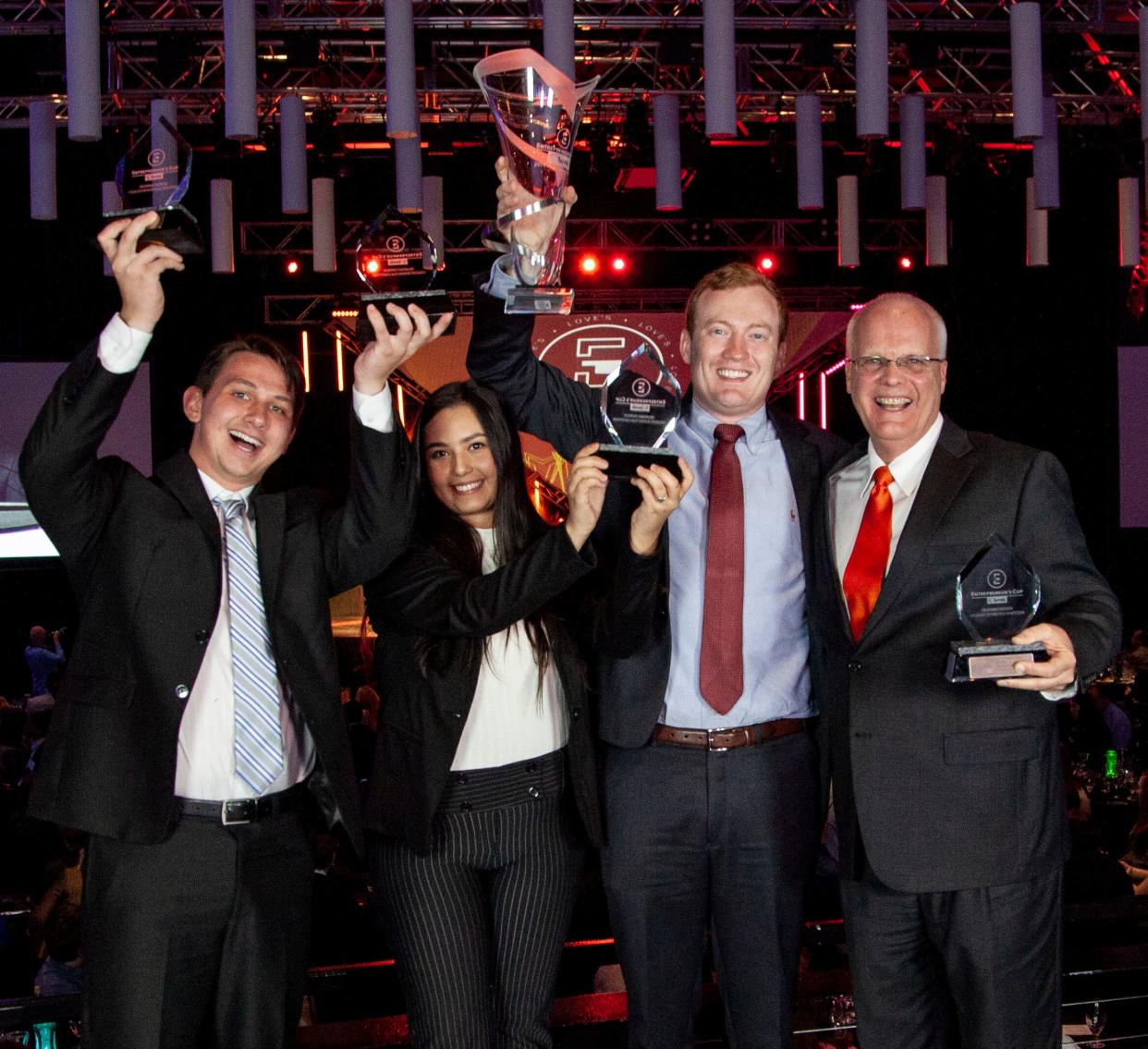Meacham: Paldara an example of how Love’s Entrepreneur’s Cup finds the best of Oklahoma

For the eighteenth consecutive year, Oklahoma’s statewide collegiate business plan competition is underway. The Love’s Entrepreneur’s Cup, underwritten by Love's Travel Stops & Country Stores, has become an important underpinning of the entrepreneurial ecosystem of Oklahoma.
Nothing illustrates that better than when a Love’s Cup-winning team builds a company based on their competition business plan. That’s the story of Paldara Pharmaceuticals, founded by Beau Blanchard and William Colton.
Colton was a sophomore at Oklahoma State University working in Dr. Matthew Cabeen’s lab studying biofilm formation, a mechanism of antibiotic resistance in P. aeruginosa, a type of germ that causes infections in humans. Blanchard, while earning his MBA at OSU, was also working on a project funded by the National Science Foundation to identify university-developed technologies with the potential for commercialization.
“I had worked on three such technologies,” Blanchard said, “and none made it past university level. I was writing thank-you notes to all the healthcare executives who had tried to help us when Will came running into the Riata Center for Entrepreneurship at OSU shouting that he needed a patent attorney and a business partner.”
Colton had come up with a therapeutic hydrogel with nano-technology components to prevent catheter-associated urinary tract infections.
“It can lubricate the catheter,” he said, “making it easier to insert, while the antibacterial seeks out and destroys disease-causing bacteria as they are developing.”
It was impossible, Blanchard says, not listen to the stranger who was to become his friend and co-founder.
“I asked Will if he would be interested in teaming up for an independent study for a semester,” he said. “We ended up entering the Love’s Cup with his idea.”
The first market validation phone call Blanchard made was to a director of nursing at a hospital in Dallas. “I told her this is what we are setting out to do. What would you think if you could prevent catheter-associated urinary tract infections? She said that she would spend 400% more per catheter if we could do what we thought we could do,” said Blanchard.
“It was the first time in the course of doing market research for these technologies that anyone said they would be willing to pay a premium,” he said. “We reached out to more healthcare executives across the Midwest. With the incredible guidance of our Love’s Cup business advisor, David Thomison, we developed a well-researched unit value proposition from interviewing more than a hundred healthcare executives.”
The Paldara team won first place in the High Growth Graduate Division. The $20,000 prize allowed Blanchard and Colton to take a few months to set up their company, fund more laboratory research, and conduct market analysis. They are geared toward finalizing their product and preparing for the FDA process for a Class II medical device. Each is driven by family history.
“Both of my older brothers passed away as victims of the opioid epidemic,” Colton said. “That drives me every day to produce affordable, safe, and effective products for patients that wouldn’t otherwise have a chance against these infections. I want to make my brothers proud.”
When Blanchard was fifteen, his grandfather died from a catheter-associate urinary tract infection. “He went into the hospital,” Blanchard said, “for what was supposed to be a normal procedure and he died of sepsis poisoning of his bloodstream.”
Paldara received an OCAST Technology Business Finance Program concept award. Additionally, the company has bootstrapped development via business plan competitions at Rice University, Baylor University, and Arizona State University. Like so many entrepreneurs, the founders have “day jobs”. Colton is completing his master’s degree at OSU in microbiology and molecular genetics, and Blanchard is working as a Catholic missionary.
“I have written on my soul to help others,” Blanchard said. “I love being a missionary, but the business piece is where my soul comes alive. I believe in our technology. I have seen it work in the lab real-time. I want to make the world a better place.”
We hear often from Love’s Entrepreneur’s Cup students who found companies based on their business plans--that they want to make the world a better place. Many of them, like Blanchard and Colton, already are.
Scott Meacham CEO of i2E Inc., a nonprofit corporation that mentors many of the state’s technology-based startup companies. i2E receives state support from the Oklahoma Center for the Advancement of Science and Technology and is an integral part of Oklahoma’s Innovation Model. Contact Meacham at i2E_Comments@i2E.org.
This article originally appeared on Oklahoman: Meacham: Paldara lives up to its award-winning history

